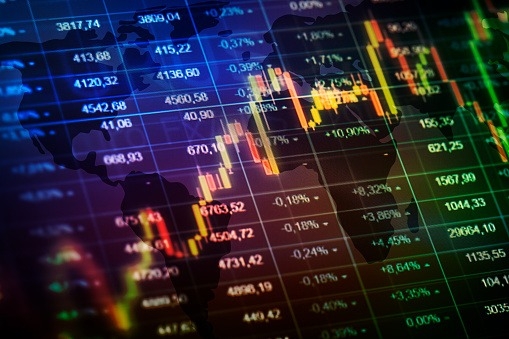Tokyo: Global shares mostly declined Wednesday, as investors took a wait-and-see stance ahead of earnings reports and possible moves by central banks.
The price of food in the UK rose at the fastest pace in 45 years last month, keeping inflation above 10per cent for a seventh straight month amid a cost-of-living crisis that has fueled a wave of strikes by government workers.
The 10.1per cent figure was slightly below the previous month’s 10.4 per cent, but still shows the British government and Bank of England are struggling to prevent price increases triggered by Russia’s invasion of Ukraine from becoming embedded in the economy.
France’s CAC 40 edged nearly 0.1 per cent lower to 7,527.32 in early trading, while Germany’s DAX dipped almost 0.2 per cent to 15,857.23.
Britain’s FTSE 100 lost 0.3 per cent to 7,886.11. The future for the Dow Jones Industrial Average was 0.3 per cent lower while the S and P 500 future fell 0.4 per cent.
In Asian trading, Japan’s benchmark Nikkei 225 slipped 0.2 per cent to finish at 28,606.76. Australia’s S and P/ASX 200 edged up nearly 0.1per cent to 7,365.50. South Korea’s Kospi gained nearly 0.2 per cent to 2,575.08.
Hong Kong’s Hang Seng lost 1.4per cent to 20,367.76. The Shanghai Composite shed 0.7per cent to 3,370.13.
News that China’s economic growth accelerated in the latest quarter, to an annual 4.5per cent, has not had much of an impact on share prices.
While consumption and retail sales have grown, other indicators, such as industrial output and fixed-asset investments, were weaker and indicate an uneven recovery.
“It may still be a worst-is-over story, but recovery has shown to be more gradual than a one-shot wonder,” Yeap Jun Rong, market analyst at IG, said in a report.
On Tuesday, the S and P 500 edged up 0.1per cent and the Dow industrials slipped less than 0.1per cent. The Nasdaq composite was down less than 0.1 per cent.
In earnings released so far, the majority of companies have been beating forecasts in the early days of this reporting season.
Coming up later this week will be reports from several dozen more companies, including A T and T, Tesla and Procter and Gamble.
Attention will also turn to reporting by smaller, regional banks such as KeyCorp and Zions Bancorp. Their stocks took a hit last month following the second- and third-largest US bank failures in history.
A larger worry for the economy is that the banking industry’s woes could cause a pullback in lending, pressuring an economy already straining under the weight of much higher interest rates.
Inflation is slowing, but it’s still high, and traders widely expect the Fed to raise rates again at its next meeting in May.
In energy trading, benchmark US crude fell $1.20 to $79.66 a barrel in electronic trading on the New York Mercantile Exchange. Brent crude, the international standard, declined from $1.22 to $83.55 a barrel.
In currency trading, the US dollar rose to 134.89 Japanese yen from 134.12 yen. The euro fell to $1.0956 from $1.0975.
AP

